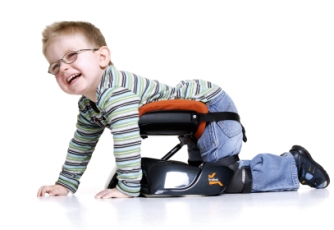Disabilities
How to Help Handicapped Children and Adults through Social Work?
Sandy Baker — Handicapped people are part of our society, and they include adult and kids. Despite their disabilities, most of them even try their best to participate with common people in just about any activity that would be fit for them. Some of them receive help from the government through special health programs, but others are not enjoying life because of limited resources.
Some of the most common disabilities we know are blindness, loss of hearing, and those physical conditions that can easily be noticed, such as not being able to stand and walk. Social work for handicapped children and adults has gone beyond the traditional methods of treating their disabilities. Below are some of the ways in which you can help them through social work.
Seek Help from Social Workers
Social workers help handicapped adults through direct counseling and help them improve their capabilities. They also help them deal with their relationships with others; solve their personal, family, and community problems; and other problems affecting their daily lives. This includes inadequate housing, lack of job skills, unemployment, and poverty. Handicapped children usually enter a child welfare system and are given special educational services. Social workers usually arrange consultation with patients for services they need, and making sure that the services are helpful. They review eligibility requirements and visit them regularly. There are social workers who are also working with community organizations, administration, or in research work.
Bring Them to Health Professionals
There are a lot of physiotherapists or physical therapists and psychologists who provide free help to handicapped children and adults. They also give advices to family caregivers and provide counsel to patients, as well as assisting them in their needs after discharge, such as giving recommendations on the equipment they need. There are also many non-profit organizations that offer free medication and special health care. Generous philanthropists, huge private companies, and even ordinary citizen are supporting these institutions. Then there are mental health social workers who provide complimentary services for persons with mental problems.
Provide Them Special Equipment
These days, technology is helping a lot of physically challenged people, particularly with the special equipment they need, such as Quest88 disability aids that have features and accessories that can help them stand and walk. There are now versions of walking skeletons that can be guided by hand and those that can be steered by the feet.There are also walking frames that could be useful for kids who need upper body and pelvic support while walking for longer periods. The pediatric standing frames, apart from assisting the children to stand, can also improve their circulation, digestion, and breathing.
These therapy and mobility products for children and adults are particularly designed to assist and sustain their physical development. This includes walkers, standing frames, and even gym equipment. Other therapy equipment can also be used for certain therapeutic activities. Most companies producing such products provide demonstration before you decide to buy them.
Handicapped children and adults now have more opportunities to get aid. Social work has extended beyond the traditional methods of treating their disabilities. It’s just a matter of getting to the right people in the right places to find the product that is suitable for the theme. Likewise, charitable foundations are now easier to find.We can search them using the Internet, with social media helping a lot to introduce them to the world.
About the Author
Sandy Baker is the Marketing Head at Quest88 disability aids. There he assists his team to design and manufacture products to assist children and adults with standing and walking development, independent mobility, cycling and leisure, and gym based therapy.




